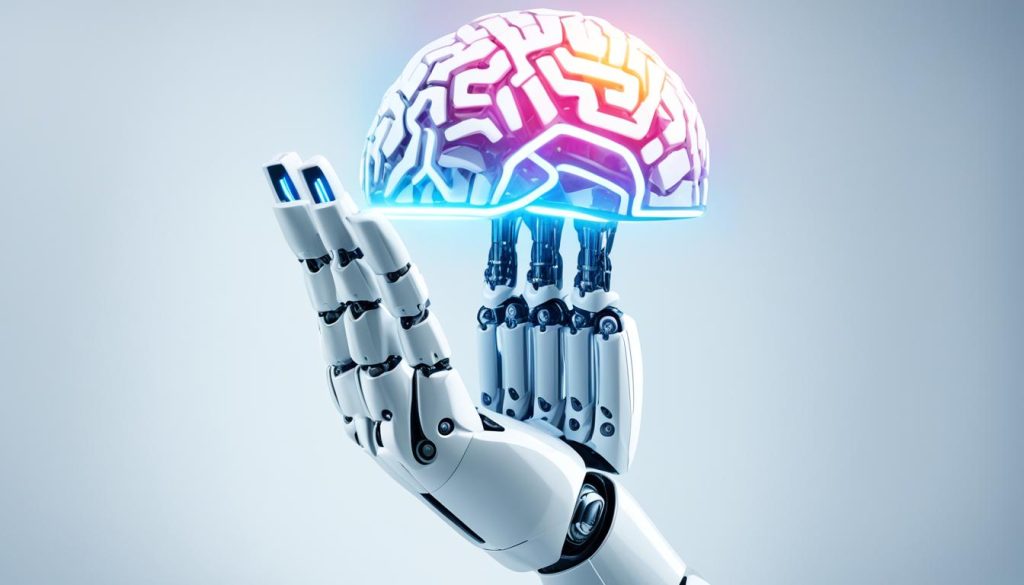In the ever-expanding realm of technology, one concept stands out as a game-changer: Artificial General Intelligence (AGI). While artificial intelligence (AI) has already transformed numerous industries, from healthcare to entertainment, the future promises an even more profound shift. What if machines could possess human-level intelligence, capable of learning, adapting, and solving complex problems across a wide range of tasks? This is the promise of AGI, a revolutionary form of AI that aspires to mimic the broad cognitive abilities of the human mind.

Transcending the limitations of narrow AI, which is focused on specific applications, AGI encompasses a diverse array of cognitive abilities, including perception, learning, reasoning, planning, and natural language processing. The development of AGI represents a monumental leap in technological advancement, with the potential to reshape every aspect of human life. But what exactly is this enigmatic AGI, and how might it transform our world?
Key Takeaways
- Artificial General Intelligence (AGI) aims to create machines with human-level intelligence and the ability to learn, adapt, and solve problems across a wide range of tasks.
- AGI encompasses a diverse array of cognitive abilities, such as perception, learning, reasoning, planning, and natural language processing, transcending the limitations of narrow AI.
- The development of AGI promises a profound transformation in every aspect of human life, from healthcare to transportation to finance and beyond.
- AGI represents a monumental leap in technological advancement, with the potential to revolutionize the future of artificial intelligence.
- Understanding the potential impact and challenges of AGI is crucial for shaping its responsible development and integration into our society.
As we delve deeper into the world of AGI, one burning question emerges: What untapped potential lies within this revolutionary form of artificial intelligence, and how might it forever change the way we live, work, and interact with technology? The answers to this intriguing query await us as we explore the transformative possibilities of AGI AI.
Unveiling the Enigma: What is AGI AI?
Artificial General Intelligence (AGI), often referred to as AGI AI, represents a transformative evolution in the field of artificial intelligence. Unlike narrow or weak AI, which is designed for specific applications, AGI possesses the capacity for generalized intelligence, transcending the limitations of its more specialized counterparts.
Transcending Narrow AI
AGI systems are envisioned to possess the ability to understand, learn, and apply knowledge in a manner akin to human intelligence. These advanced AI systems are designed to autonomously reason, solve problems, learn from experience, and engage in creative endeavors, encompassing a wide range of cognitive abilities that go beyond the confines of narrow AI.
Human-Level General Intelligence
The pursuit of AGI is driven by the aspiration to create machines with human-level general intelligence. Such systems would possess sophisticated sensory perception capabilities, autonomy, and the capacity for self-improvement. Crucially, AGI is designed to learn, reason, and think creatively, transcending the limitations of current machine learning and neural network-based approaches.
Key Capabilities: Learning, Reasoning, and Creativity
At the heart of AGI lies the aim to develop AI systems that can learn, reason, and exhibit creativity in a manner that closely mirrors human cognitive abilities. These key capabilities are what set AGI apart, enabling it to tackle a broad spectrum of tasks and challenges, unlike the narrow specialization of current AI technologies.
By unlocking the potential of AGI, researchers and developers seek to create AI systems that can adaptively apply their knowledge and skills across diverse domains, much like the versatility of the human mind. This pursuit represents a bold step towards the realization of artificial intelligence that can truly understand, learn, and interact with the world in a genuinely intelligent manner.
The Historical Roots of Artificial Intelligence
The foundational concepts of artificial intelligence (AI) can be traced back to the historic Dartmouth Conference held in 1956. It was here that researchers first coined the term “Artificial Intelligence” and outlined the ambitious goal of creating machines capable of simulating human-like intelligence. In the early days, the development of AI was primarily focused on symbolic AI, which involved employing logical principles and symbolic representations to mimic human reasoning and problem-solving abilities.
Over the decades, the field of AI has witnessed significant milestones and technological achievements. Advancements in natural language processing, knowledge representation, and the development of expert systems have been instrumental in shaping the evolution of AI. However, the true paradigm shift occurred in the 21st century with the advent of machine learning and neural networks.
The Rise of Machine Learning and Neural Networks
The emergence of machine learning and neural networks fueled a remarkable surge in the capabilities of AI systems. These innovative approaches enabled breakthroughs in areas such as speech recognition, image classification, and natural language understanding. By leveraging the power of deep learning, AI systems could now learn and adapt from vast amounts of data, mimicking the cognitive processes of the human brain.
The evolution of AI has been a testament to the ingenuity and persistence of researchers and pioneers who have continuously pushed the boundaries of what machines can achieve. From the foundational concepts laid at the Dartmouth Conference to the modern advancements in machine learning and neural networks, the history of artificial intelligence is a remarkable journey of innovation and exploration.
The Revolutionary Potential of AGI AI
AGI holds immense promise for addressing complex challenges and unlocking new opportunities across diverse fields. In healthcare, AGI is revolutionizing medical diagnostics, enabling personalized treatments, and assisting in complex surgical procedures. The transportation sector is witnessing the emergence of autonomous vehicles and intelligent traffic management systems, promising safer and more efficient mobility.
Moreover, AGI is transforming education by offering personalized learning experiences and intelligent tutoring systems, fostering individual growth and enhancing educational outcomes. AGI also has the potential to enhance sustainability by optimizing resource management and tackling climate change with AI-driven solutions, as well as accelerate scientific discovery through automated research and problem-solving.
Transforming Healthcare
In the healthcare industry, AGI-powered systems are revolutionizing medical diagnostics, enabling personalized treatments, and assisting in complex surgical procedures. These advancements promise to significantly improve patient outcomes and transform the delivery of healthcare worldwide.
Enhancing Sustainability
AGI holds the potential to enhance sustainability through optimized resource management and the development of AI-driven solutions to tackle climate change. By leveraging the problem-solving capabilities of AGI, we can unlock new strategies for sustainable energy, resource conservation, and environmental protection, paving the way for a more resilient and eco-friendly future.
Accelerating Scientific Discovery
The integration of AGI into scientific research has the power to accelerate the pace of discovery. AGI-driven automation and data analysis can identify patterns, generate hypotheses, and solve complex problems at a rate far exceeding human capabilities. This transformative potential can lead to groundbreaking advancements across fields like medicine, physics, and climate science, propelling us towards a new era of scientific progress.
agi ai: The Pinnacle of Artificial Intelligence
Artificial General Intelligence (AGI) represents the pinnacle of AI research, aspiring to create machines with human-level artificial general intelligence capable of mastering any intellectual task. While still in the realm of speculation, AGI holds immense promise for addressing complex challenges and unlocking new opportunities across diverse fields.
AGI systems would possess the flexibility and adaptability to learn and apply knowledge in a manner similar to humans, encompassing cognitive abilities such as perception, learning, reasoning, planning, and natural language processing. The realization of AGI would mark a transformative shift in the capabilities of artificial intelligence, with profound implications for virtually every aspect of human life.
As researchers continue to push the boundaries of AI advancements, the development of AGI represents a monumental leap in technological progress, poised to revolutionize industries, enhance human capabilities, and reshape the future of our society.
| Key Features of AGI AI | Potential Impacts |
|---|---|
|
|
“The development of Artificial General Intelligence represents one of the most exciting and challenging endeavors of the 21st century, with the potential to transform every aspect of our world.”
As the pursuit of AGI AI continues, researchers and policymakers must navigate the complex ethical and societal implications to ensure the responsible development and integration of these transformative technologies.
Ethical and Societal Implications of AGI AI
The development of Artificial General Intelligence (AGI) raises profound philosophical and ethical questions that society must grapple with. Concerns about the potential existential risks of superintelligence and its ability to surpass human control demand rigorous evaluation and proactive measures to ensure the responsible advancement of AGI.
Existential Risks and Safety Concerns
As AGI systems become increasingly sophisticated, the prospect of them outpacing human capabilities and potentially posing existential risks to humanity cannot be overlooked. Researchers and policymakers must prioritize the development of robust safety measures, control mechanisms, and ethical frameworks to mitigate the potential for AGI to cause unintended harm or to spiral out of human control. Ongoing research and collaboration are essential to address these agi ai ethics challenges and safeguard the future of our species.
Job Displacement and Economic Disruption
The prospect of AGI automating jobs currently performed by humans raises the specter of widespread job displacement and economic disruption. This potential upheaval in the job market demands careful consideration of policy interventions, retraining initiatives, and social safety nets to support workers and communities affected by the transition to an AGI-driven economy. Proactive measures are needed to ensure a smooth and equitable transition, minimizing the negative economic disruption and promoting the responsible integration of AGI technologies.
Privacy and Bias Mitigation
The reliance of AGI on vast amounts of personal data raises critical privacy concerns and the need for robust data security measures. Additionally, the potential for algorithmic bias in AGI decision-making algorithms must be diligently addressed to ensure fairness and non-discrimination. Comprehensive privacy regulations, algorithmic auditing, and ethical AI principles are crucial in safeguarding individual rights and promoting the equitable deployment of AGI technologies.
Addressing these ethical and societal implications is paramount in shaping the responsible development and integration of AGI. By fostering open dialogue, prioritizing ethical considerations, and focusing on human-centered design, we can harness the transformative potential of AGI while mitigating the risks and disruptions to our society.
Overcoming Challenges: The Path to AGI AI
Significant hurdles stand in the way of the creation of AGI. Replicating human intelligence in a machine remains an enigma, as the very nature of human intelligence is not fully understood. Researchers continue to grapple with the complexities of this challenge, exploring various approaches to unlock the secrets of the human mind.
Understanding Human Intelligence
The fundamental question of what constitutes human intelligence persists as a critical obstacle in the pursuit of AGI. Researchers are delving deeper into the intricacies of human cognition, studying the neural mechanisms, information processing, and problem-solving strategies that enable our remarkable intellectual capabilities. By gaining a more comprehensive understanding of the human mind, they seek to develop AI systems that can emulate and surpass these cognitive abilities.
Achieving Consciousness and Sentience
The debate surrounding consciousness and sentience in AGI systems continues to captivate the scientific community. There are ongoing discussions about whether true intelligence is possible without subjective experience and self-awareness. Researchers are exploring various approaches, including advancements in machine learning and the integration of insights from neuroscience and cognitive science, to address this challenge and move closer to the realization of AGI systems that possess a semblance of conscious awareness.
Addressing the Embodiment Problem
The embodiment problem poses a significant challenge in the pursuit of AGI. Human intelligence is deeply tied to our physical bodies and the way we interact with the world. Replicating this embodied cognition in artificial systems is a complex task that requires researchers to consider the role of physicality, sensory perception, and the integration of cognitive processes with the environment. Innovative approaches, such as the development of advanced robotic platforms and the exploration of embodied AI, are being pursued to tackle this fundamental challenge.
As researchers continue to push the boundaries of AI capabilities, they are exploring a variety of research approaches to address these challenges. From advanced machine learning algorithms to artificial neural networks inspired by the human brain, and the integration of insights from cognitive science, the path towards the realization of AGI remains both captivating and complex.

AGI AI: Applications and Impacts
AGI has the power to revolutionize a wide range of industries and sectors, ushering in transformative advancements across diverse domains. From healthcare to transportation and finance, the integration of AGI technologies holds immense potential to drive innovation, optimize processes, and enhance user experiences.
Revolutionizing Healthcare
In the healthcare realm, AGI-powered systems could redefine the landscape of medical diagnostics, enabling personalized treatments and assisting in complex surgical procedures. By leveraging advanced machine learning algorithms and natural language processing, AGI-driven healthcare solutions have the capacity to streamline patient care, improve outcomes, and accelerate the pace of medical breakthroughs.
Optimizing Transportation and Logistics
The transportation sector is primed for a seismic shift driven by the integration of AGI technologies. The emergence of autonomous vehicles and intelligent traffic management systems, powered by AGI, promises a future of safer, more efficient, and sustainable mobility. AGI-based logistics optimization can revolutionize supply chain management, reduce congestion, and enhance the overall user experience for commuters and freight operators.
Transforming Finance and Economics
In the realm of finance and economics, AGI-driven algorithms are reshaping the dynamics of global markets, impacting areas such as algorithmic trading, fraud detection, and economic forecasting. The ability of AGI systems to rapidly process and analyze vast amounts of financial data, detect complex patterns, and make informed decisions can lead to significant advancements in financial planning, risk management, and investment strategies.
The widespread integration of AGI technologies has the power to disrupt and transform various industries, optimizing processes, enhancing user experiences, and driving unprecedented levels of efficiency and innovation. As researchers and developers continue to push the boundaries of AGI capabilities, the responsible and ethical deployment of these transformative technologies will be crucial in realizing their full potential for the betterment of society.
The Future of AGI AI: Opportunities and Collaboration
The future of AGI AI holds tremendous potential for collaboration and responsible development. As the field of artificial general intelligence (AGI) continues to evolve, the convergence of human intelligence and AGI systems presents extraordinary opportunities for enhancing human skills and resolving complex challenges.
Human-AI Collaboration and Augmentation
AI augmentation, where humans and machines work in tandem, has the potential to revolutionize performance and decision-making across a wide range of industries, from healthcare to scientific research. By leveraging the unique strengths of both human and artificial intelligence, we can unlock new levels of efficiency, problem-solving, and innovative breakthroughs.
Ethical AI and Responsible Development
Alongside the exciting prospects of AGI AI, the responsible development of this technology requires the establishment of robust ethical principles and governance frameworks. Ensuring transparency, accountability, and the alignment of AGI systems with human values and goals is crucial. Promoting open dialogue, fostering ethical AI practices, and prioritizing human-centered design are essential steps in shaping a future where AGI serves as a powerful tool for progress and societal benefit.

By embracing the potential of human-AI collaboration and adhere to ethical guidelines, we can unlock the transformative power of AGI AI and harness its capabilities to address some of the world’s most pressing challenges. The future of this technology holds immense promise, and it is our responsibility to guide its development in a manner that prioritizes the wellbeing of humanity and the sustainable progress of our society.
Conclusion
While AGI remains a future possibility, understanding its potential impact and risks is crucial for shaping its responsible development. By fostering open dialogue, prioritizing ethical considerations, and focusing on human-centered design, we can ensure that AGI serves as a powerful tool for progress, enriching our lives and building a brighter future for all. The pursuit of AGI represents one of the most exciting and challenging endeavors of the 21st century, with the potential to transform every aspect of our world.
As researchers continue to push the boundaries of AI capabilities, the responsible development and integration of AGI technologies will be paramount in realizing its tremendous benefits while mitigating potential risks and societal disruptions. The future of artificial intelligence, and specifically AGI AI, holds immense promise, but it must be approached with a steadfast commitment to responsible development and a keen awareness of its potential societal impact.
By fostering collaboration, prioritizing ethical principles, and maintaining a human-centric focus, we can ensure that the pursuit of AGI AI leads to a future where advanced technologies serve as catalysts for progress, enhancing our lives and creating a more prosperous and sustainable world for all.

